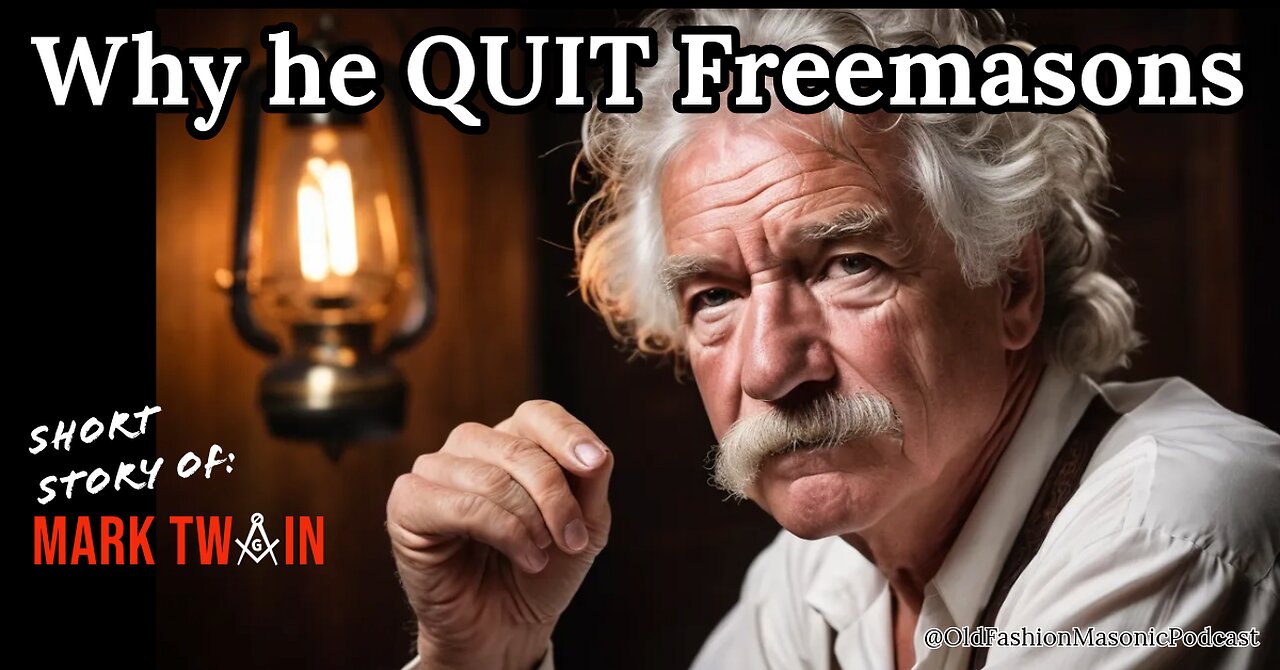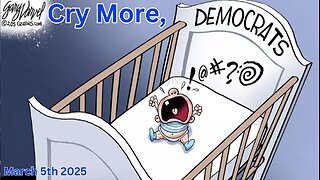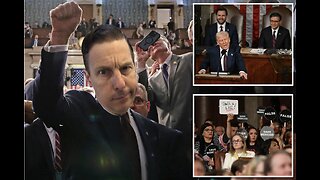Premium Only Content

Freemason Mark Twain and Why He Left Freemasonry
Freemason Mark Twain and Why he QUIT Freemasonry
Samuel Langhorne Clemens, known as Mark Twain, was a celebrated American writer renowned for his humor and wit. He authored classics like "The Adventures of Tom Sawyer" and "Adventures of Huckleberry Finn." Twain's upbringing in Missouri influenced many of his stories. His career included stints as a printer, riverboat pilot, and journalist.
He gained fame with "The Celebrated Jumping Frog of Calaveras County" and was praised for his satire and social commentary. Despite financial struggles, he remained resilient, fulfilling his debts after bankruptcy. Twain's life ended as he predicted, coinciding with the return of Halley's Comet.
By why did he leave Freemasonry?
Samuel Langhorne Clemens, born in 1835 in Missouri, was the sixth of seven children. His parents, Jane and John Marshall Clemens, had roots in Kentucky and Virginia. Raised in Hannibal, Missouri, he left school at 11 after his father's death and became a printer's apprentice.
Twain's fascination with steamboats led him to pursue a career as a riverboat pilot, mastering the Mississippi River's twists and turns. His experiences on the river inspired his pen name, derived from the leadsman's call "mark twain" signifying safe depths.
In 1861, Clemens, accompanied by his brother Orion, journeyed west to Nevada, where Orion had taken a position as secretary to the governor. Their travels led them across the Great Plains and Rocky Mountains, eventually settling in Virginia City.
Twain's literary career gained momentum with the publication of this tale, earning him national acclaim. Subsequent travels to the Sandwich Islands and a Mediterranean tour further enriched his repertoire and expanded his fame. Twain's encounters abroad, coupled with his wit and storytelling prowess, solidified his status as a prominent literary figure.
Mark Twain had a strong interest in science and formed a close bond with Nikola Tesla, spending much time together in Tesla's laboratory. He patented three inventions, including a self-pasting scrapbook that became commercially successful. Twain also supported fingerprinting as a forensic technique and incorporated it into his works.
Mark Twain made significant money from his writing but lost much through investments, particularly in inventions like the Paige typesetting machine. Despite spending a substantial sum on it, it became obsolete before it could be perfected. He also faced losses through his publishing house.
Financial troubles led to the closure of his home and a move to Europe, where he wrote and lectured to regain stability, with support from Henry Huttleston Rogers. Rogers managed Twain's finances, helping him recover. Twain embarked on a worldwide lecture tour to pay off his debts, despite no legal obligation to do so, documenting his travels in "Following the Equator."
Twain's views became more radical as he grew older. Twain was a staunch supporter of technological progress and commerce. He was against welfare measures, because he believed that society in the "business age" is governed by "exact and constant" laws that should not be "interfered with for the accommodation of any individual or political or religious faction".
According the to the Northern Masonic Jurisdiction of the Scottish Rite, Mark Twain presented his petition to Polar Star Lodge number 79 of Saint Louis on December 26, 1860. He received the first degree shortly after on February 18, 1861.
In a twist of events shortly after Twain had been raised as a Master Mason, he left for the Nevada Territory to work as the private secretary to his brother Orion, and was subsequently suspended from his home lodge.
In April of 1867, Mark Twain petitioned for readmission to his home Lodge and was reinstated.
Twain soon became a busy man; writing, tours, and the beginnings of fame kept him away from Saint Louis for long periods of time. On one of his first trips exploring Europe and the Near East, Twain is said to have been greatly impressed by Lebanon and its connection to Freemasonry.
He ended up retrieving a piece of cedar and had it made into a gavel to send back to the Worshipful Master of his mother Lodge.
Sadly, this passion for Freemasonry was soon to be impacted by Twain’s engagement to Olivia Langdon and he asked for a demit, remaining unaffiliated for the rest of his life.
His famous prediction of dying with Halley's Comet came true when he passed away in 1910, shortly before its return.
We hope you enjoyed this episode. Please don’t forget to like, subscribe and comment to the Old Fashion Masonic Podcast.
https://en.wikipedia.org/wiki/Mark_Twain
https://scottishritenmj.org/blog/the-masonic-life-of-mark-twain
-
 2:10:02
2:10:02
Matt Kohrs
8 hours agoStocks on Edge, Breaking Market News & Live Trading $1M || The MK Show
28.5K5 -
 LIVE
LIVE
Caleb Hammer
33 minutes agoThis One Will Trigger You | Financial Audit
223 watching -
 LIVE
LIVE
LFA TV
15 hours agoUNHINGED & DESTRUCTIVE! | LIVE FROM AMERICA 3.5.25 11AM
4,391 watching -

Dr David Jockers
1 hour ago12 WARNING Signs You’re Low on Vitamin D You Need to Know!
10 -
 50:13
50:13
BonginoReport
4 hours agoState of the Union Breakdown: Democrats' Disastrous Decorum (Ep.153) - 03/05/2025
77.1K194 -
 LIVE
LIVE
Wendy Bell Radio
6 hours agoCry More, Democrats
13,337 watching -
 1:21:20
1:21:20
Dear America
11 hours agoTrump DOESN'T HOLD BACK In Speech To Congress FULL RECAP!
40.9K10 -
 36:09
36:09
Dad Dojo Podcast
2 hours agoEP22: Don't Talk To My Kid!!!
4.21K -
 1:38:34
1:38:34
Jeff Ahern
2 hours ago $2.37 earnedNever Woke Wednesday with Jeff Ahern (big time speech)
24.4K2 -
 39:10
39:10
Producer Michael
20 hours agoINSIDE AN INSANE MIAMI SUPERCAR COLLECTION!
42.8K3